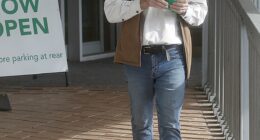
Financial pressure was a key factor contributing to these low scores, with those in financial hardship – such as insecure housing, low income or unemployment – having the lowest levels of personal wellbeing.
One in two adults under 55 reported going without essential items because of money pressures and felt financially worse off than their parents were at their age.
Australian Unity wealth and capital markets CEO Esther Kerr said the generation gap when it came to Australians’ wellbeing was accelerating.
“On one hand, we have people over 55 owning real estate and with healthy savings, while younger generations are on a spinning hamster wheel as saving gets harder and harder, and asset ownership gets further and further out of their reach,” she said.
“If this continues, we’ll be living in a country where wellbeing is for the wealthy and home ownership is hereditary.”

Notably, Australians’ satisfaction with their health fell to the lowest level on record – even taking into account the COVID-19 pandemic years.
Those aged under 55 and families with a household income of $104,000 or less recorded significantly lower personal wellbeing than older adults and those with higher household incomes, respectively.
Lead researcher Deakin University’s Dr Kate Lycett said growing age and income inequalities were “concerning”.
“These findings go against our expectations of social progress, where each generation will be better off than the next, and point to an urgent need to tackle growing national inequities,” she said.







